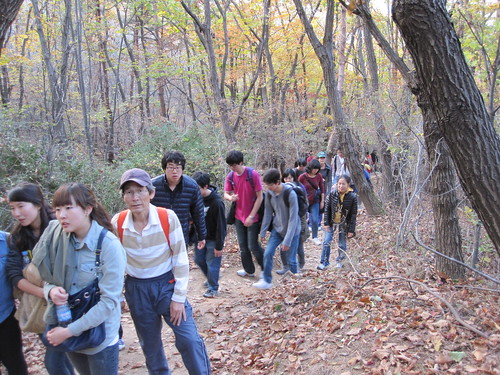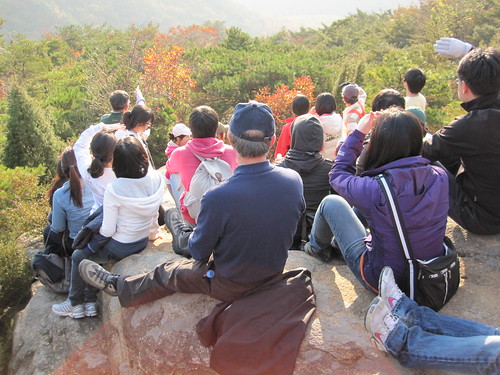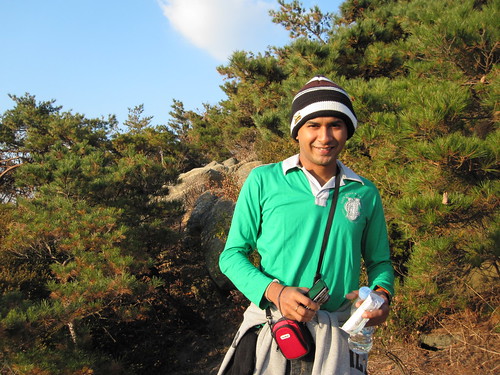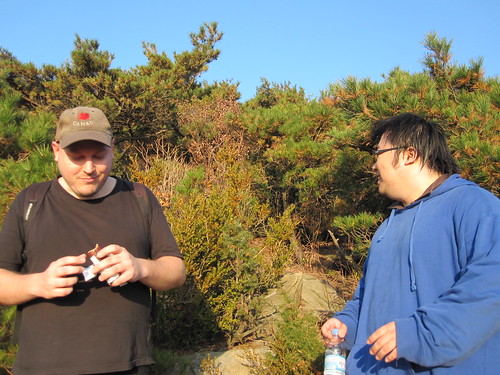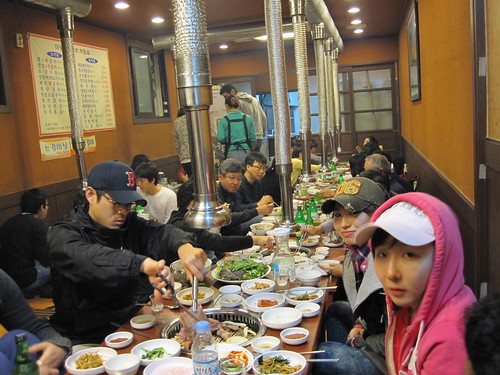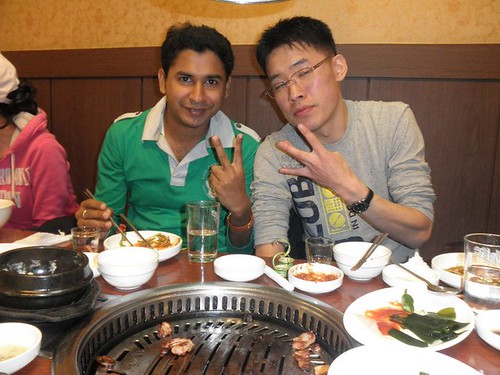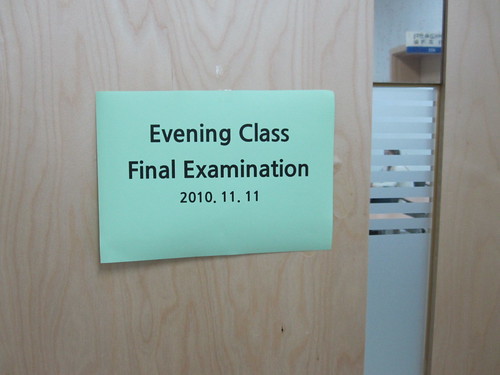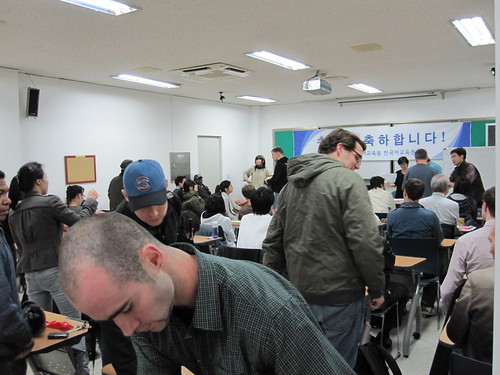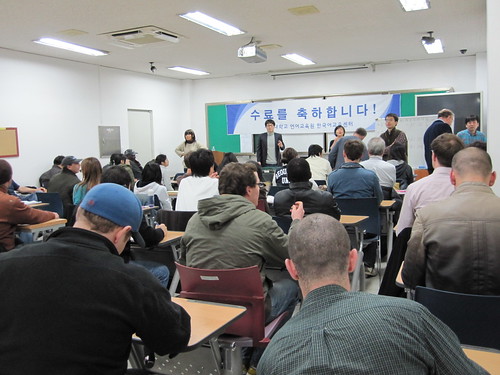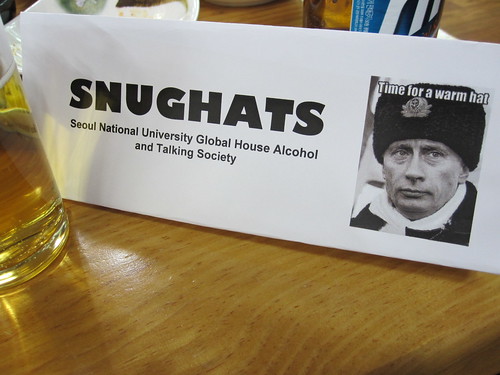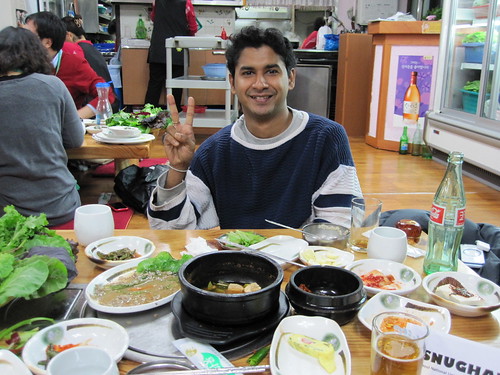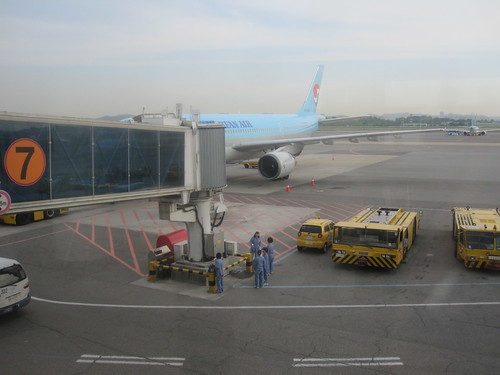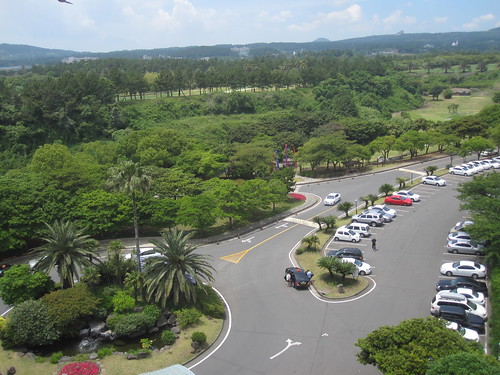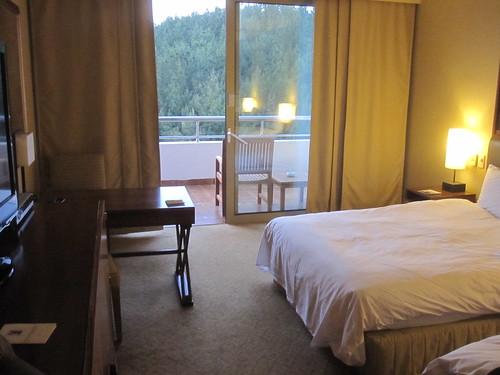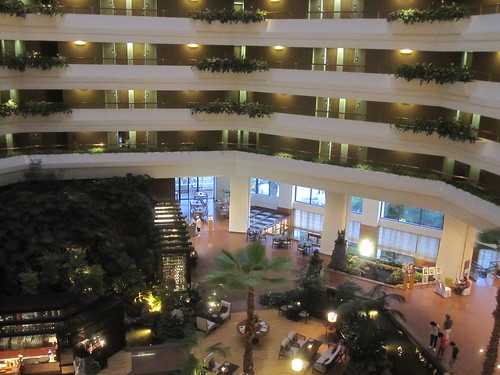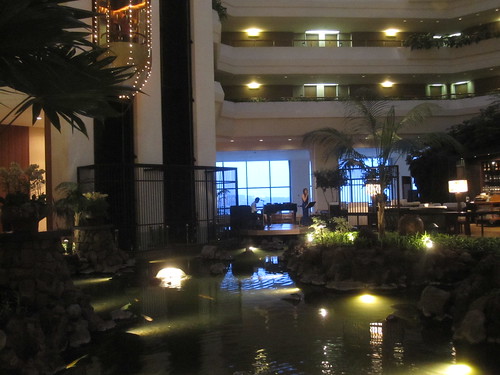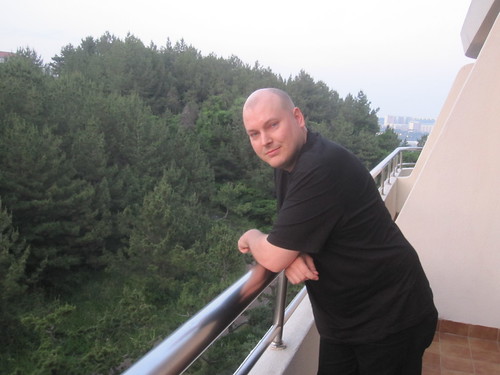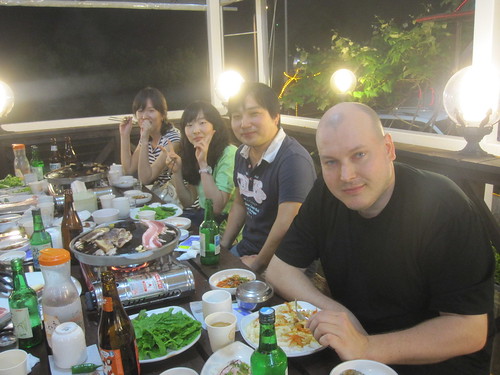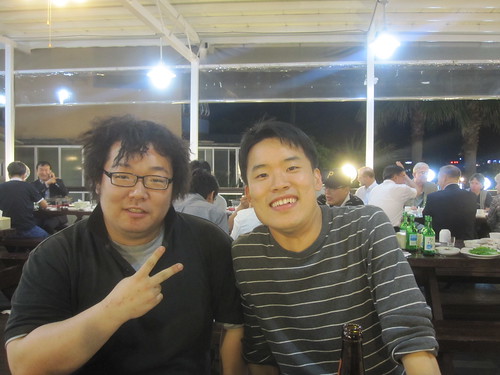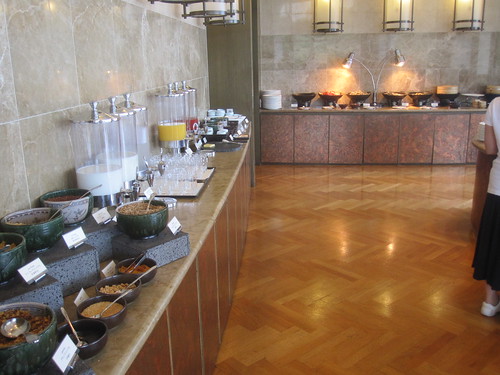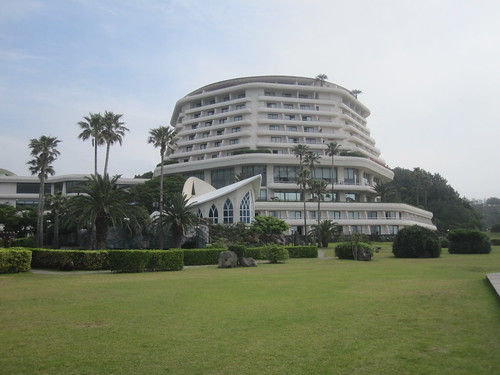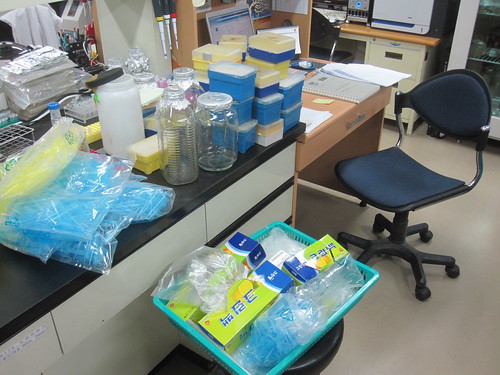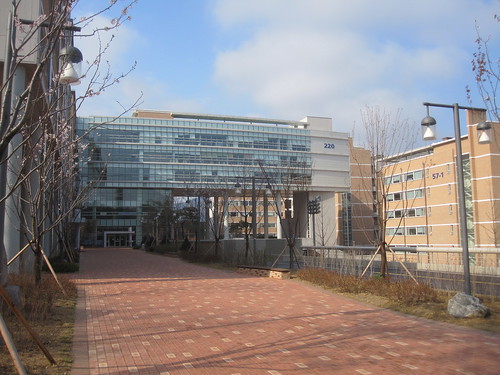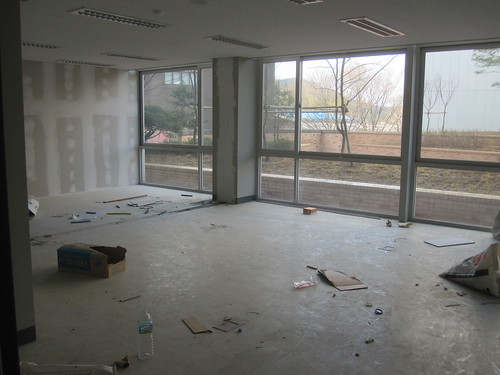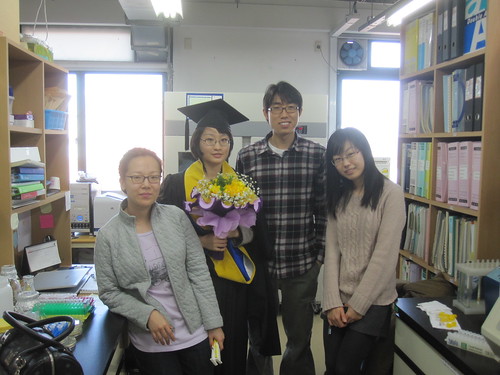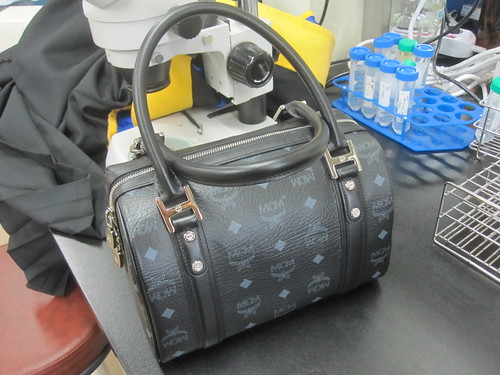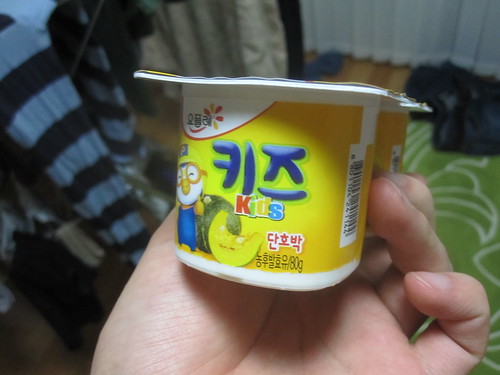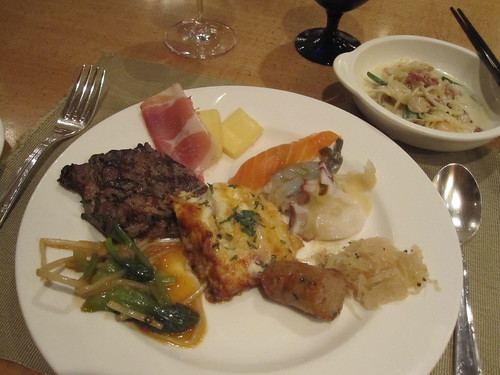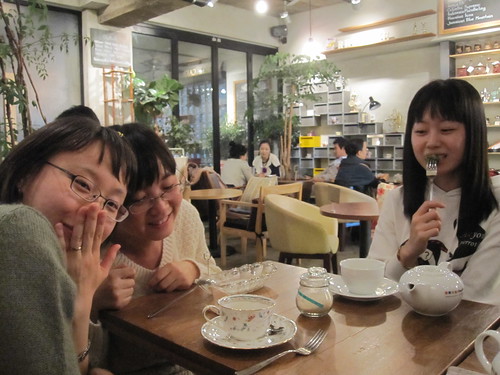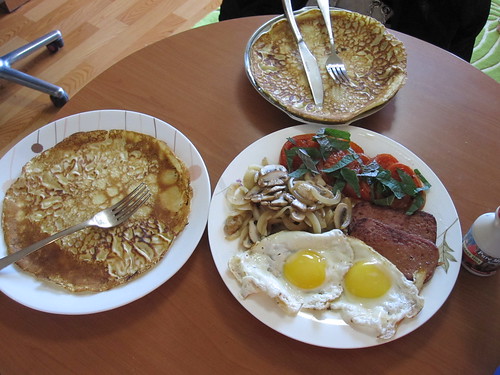I've been here since January 2009, putting in 70+ hour working weeks while still trying to maintain some semblance of a normal life with Heather. Since joining the lab here, I haven't posted a whole lot of details of the working environment, partly because life here is really tough. I try to keep this little blog as positive as possible, for various reasons, but here will be one exception.
Today I quit my PhD program and packed up all my belongings. Next week I'm beginning a brand new PhD in ovarian cancer research. I've spent a year and 3 months working in the plant bacteriology lab, but it hasn't entirely been a wasted effort.
I ran away from home when I had just turned 16 years old and never returned. I get along with my parents now, but I had all sorts of identity issues when I was a youngster. I quit school, got into a lot of trouble with the police and was even homeless at one stage. But things changed and I was lucky enough to have some incredibly good friends who helped pull me through the bad times. Without them, it wouldn't have happened. I went back to school, worked in various jobs and graduated from the
University of Adelaide while supporting myself. This may all be part of a longer blog post in the distant future, but the purpose of letting this out now is to give you the idea that I'm not a particularly fragile or oversensitive person.
Mentally, I feel like I'm pretty much as tough as nails, albeit a little cocky at times. So when I say that doing a PhD at
Seoul National University in the Agricultural Biotechnology department is tough, I mean that it really is a matter of emotional survival.
My aim here is not to slander the department, but rather to tell the truth for what it is.
Korean education culture is highly competitive and automated. Students are often encouraged to sacrifice important aspects of a healthy childhood in order to become academically superior to their peers. From middle school, nearly all students are expected to attend hagwons (cram schools), adding hundreds of study hours to the regular school program. Exam study periods are vicious, sleepless periods of the year where even the businesses here adjust their timetables to compensate for the change. Many Korean parents are under the belief that family honour is at stake if their children can't get into a good university. This isn't all bad, because Korean students rank very highly in international assessments and the national economy continues to excel. But the downside of this system is an unusual number of student suicides, and a generation of adolescents lacking basic social skills.
Seoul National University recruits the best students in Korea. So what effectively happens is that you get three kinds of students here. Type A are the brilliant, gifted, hard working types who spawn emeritus professors. Type B are people like me, who for whatever reason, have had fortune smile upon them and they somehow ended up on the enrolment list. And Type C are what I call the 'pathologically determined'. These are the ones who have had enormous pressure from their families to sacrifice everything for academia. While not being innately brilliant minds, they make up for it with brute determination and an astronomical number of sleepless nights. Instead of figuring out the best way to climb over the mountain, Type C students simply headbutt the thing until it dissolves.
A few years ago, our lab had 5 Type A doctoral students. Their names are Dr JG Kim, Dr JH Oh, Dr YS Kang, Dr JW Kim and Dr OH Choi. As you can see, they all graduated. I've only met three of them, but from their publications and email correspondence I can tell that they all deserved their degrees. At SNU, you have to publish in prominent journals to be even eligible to graduate. This means that if your research isn't up to scratch, you could be stuck here for a long time. An 8-year PhD is not out of the question. What happened in our lab was that the Type A's made it through, and the last one left soon after I arrived.
When I arrived in January 2009 as an enthusiastic young doctoral student, I was placed under the direct mentorship of an exceptionally prickly Type C. I'm not going to name him, but he has been in the lab for the past 5 years and hasn't published anything, nor is he even going to graduate in the next 2 years. This can sometimes be put down to bad luck: in science you have to be working on a project that can produce results, and not all of them will. But in his case, it's purely a matter of laziness.
When you're given a mentor in a lab, you are completely dependent on them for the first few months. Labs and lab equipment are quite complex for any newcomer. In the first week, my Type C mentor was very friendly to me. He gave me three packets of Shin Ramyeon as a gift. A strange gift, but a gift nonetheless.
The following week he started clicking his fingers at me. He'd say "Rhee (Lee), come here" accompanied with a small *click*. I didn't let it bother me too much. However this soon evolved to "Ya!" *CLICK!*. I still didn't complain.
Two weeks later he stopped saying anything. He'd just walk swiftly past my desk, click his fingers in my face and then walk off somewhere. This meant that I was supposed to follow him somewhere in the lab, for a new 'science lesson'. In the end I asked him not to click his fingers at me, in a polite enough way. He responded and said that because he was my 'senior' in the lab, I should respect him.
This was the beginning of our toxic working relationship.
Over the coming months I learned that not only was he uninterested in science, he was rather inept, selfish, clumsy and lazy. I put up with things for as long as I could, but eventually I just snapped. We had a major falling out and he refused to talk to me for the next 6 months or so. That was hard, and I ended up working alone, which unsurprisingly was much better than working with him. But it wasn't enough for him to leave me alone, he felt compelled to 'teach me a lesson' for disrespecting him. He waged a campaign of passive-aggressiveness, not just on me, but also on Se-Kyung and Chen Jing (the two other 'juniors' in the lab). He is a prickly person by nature and almost universally despised by everyone who knows him well. His revenge involved weeks of repeatedly slamming our cupboard doors, rattling his glass tubes while walking behind us, coughing loudly everytime we went near him and once he even stole my piece of birthday cake. This guy is 35 years old but his behaviour reminded me of our family sibling quarrels when we were 6 years old.
Okay, so any normal mature PhD student would attempt to fix this and get on with their work, right? I tried to make up with him on numerous occasions. On his birthday I gave him an envelope with the equivalent of US$100 in it. I privately told him that I was sorry for all the trouble and that I hoped we could work together well in future. He told me that he is very good at science and seemed very happy. That lasted about one week. I tried so hard to make it work, ignoring his habits and trying to appease him, but in the end it was just impossible. This Type C puzzled me so much with his endless and unwavering annoyance that I began to think that there might be a deeper psychological problem. After much reading online, I found some information on
Narcissistic Personality Disorder. This particular disorder is characterized by "a pervasive pattern of grandiosity, need for admiration and a lack of empathy."
The more I read about it, the more I was convinced that my Type C mentor was suffering from
Malignant Narcissism, a more developed but theoretical form of the disease. I began discussing this with Chen-Jing and she agreed that he satisfied every criteria admirably. Eventually I emailed Dr
David Thomas, an American psychologist, and asked him for advice. He told me that my situation was 'unenviable' and suggested that I should ignore him as much as possible and perhaps keep a diary of events for future reference.
My diary started filling up with entries.
Eventually I composed all of my thoughts into a single file and posted it on
Helium, a website where you can write articles on suggested topics and then have it rated by members of the community. The article I wrote was voted 4 out of 47. If you're interested, you can
read it here. The problem with Narcissism is that it is such a bizarre and rare disorder, others can't help but look at you oddly once you start talking about it in any great detail.
So then you may conclude that it would be best to take the matter to the professor and he can deal with it. That would be an incorrect assumption. Mental health is a taboo topic in Korea, and rarely discussed. Although our professor knew about the situation, the system at SNU just doesn't work in logical ways. Once a PhD student is accepted, there is no formal way to force a student to leave. They can only leave of their own free will, or be asked to leave. Our professor asked him to leave, but he just refused. Furthermore, the Type C mentor is devious enough to know exactly how to behave at the right times. Whenever the professor is around, he completely changes his personality into an obedient and humble student.
To make matters worse, the agricultural department at SNU is a highly conservative environment, in a conservative society. The other two Korean students in the lab, who have been here for 4 and 5 years, have been strictly adhering to the 'Korean code'. This states that no matter how bad a 'senior' may be, Confucian wisdom tells us to tolerate and respect them nonetheless. It is this ingrained idea in much of the student body here that makes life so difficult. Mutual respect and merit are revolutionary 'Western ideas' to them, and any debate about the topic gets turned into them accusing me of not understanding Korean culture. Thus, any dispute between Type C mentor and juniors gets turned automatically into the fault of the juniors. I have been enduring this situation for 15 months.
Two weeks ago I was really frustrated in the lab, but had been pretty good up until that point. Type C mentor was on a warpath. He was standing over a machine I was using and shaking his head, making noises and generally trying to get my attention. I would normally ignore him. That night, I was highly annoyed at Korean #2 turning off my PCR machine and ringing me at night to tell me that it was against the rules to use the machine overnight. He had switched off my machine and just told me that I couldn't use the machine over the phone. Seniors will do that kind of thing here. So I had to walk back from my dormitory to transfer the ligation I had been working on for many weeks. Type C mentor knew how annoying this was and thought it would be a great opportunity to upset me. I was at my lab bench, transferring the experiment and he was trying to provoke a reaction out of me by carrying on. He eventually started staring at me, so I just stared straight back at him. Then he scoffed at me in Korean and said "What are you looking at, huh? What's your problem?"
The background to the situation was that he had been annoying me for months, and had found the one night of the year that I'd snap. So I snapped and told him with true Australian passion "Man, fuck you".
I apologise to the young student that I tutor, Thomas, who reads this blog. I don't often swear, and swearing is not good. Mr Lee was just very frustrated at that time.
Anyway, Type C mentor doesn't really understand English swear words at all, so I felt the need to elaborate. It was a bizarre situation. Soon after that he had both hands around my neck, in a choke hold, with his fingers squeezing my windpipe. This guy is about 20 centimetres taller than me and about 30 kilograms heavier, I kid you not. He's like one big ugly bear, with bad teeth, who doesn't wash.
10 seconds after my air supply was cut off, I began to worry about fainting. I had taken a fairly deep breath, but he wasn't letting go. He had lost control and was screaming Korean swear words straight into my right ear with an excessive amount of ballistic saliva. He had lifted me up off my chair by my neck and pinned me against my lab bench with his large belly. Imagine a hippopotamus strangling a chihuahua over a bench. People who are familiar with psychology may be inclined to categorise this outburst as something called
Narcissistic Rage. Eventually, Korean #3 came to my aid and yelled at him to stop. I composed myself, yelled at him not to touch me, and quickly went home because his eyebrows were so high up on his forehead with craziness that his forehead had actually disappeared somewhere into thin air. I've seen a fair amount of violent craziness in my life, but this disturbed me. Especially because it was in a lab and we hadn't been drinking at all. I went home and my wife took photos of the blood blisters and swelling on my neck. My wife is awesome.
I shouldn't have sworn at him, but physical violence in a place of learning is something different, right? Not according to Korean standards. I took the next day off and learned through the nicer lab members that Type C mentor, Korean #2 and Korean #3 had a one hour meeting that morning and arrived at the conclusion that I was to be blamed. An odd story that was somehow quite different to the true one in important aspects ended up being reported to the professor. Although disagreeing with his behaviour, Korean #2 and #3 found it appropriate to once again protect the guilty and uphold the ever-logical Korean Way.
After I yelled at the professor over the phone for not believing me, I realised that things were beginning to get dangerous for my mental health. I went to the professor's office the next morning and took full responsibility for swearing at a senior. We didn't talk about it further. Then I told him that it would not be helpful for me to stay in the lab any longer because my mental well-being was at stake. But I was not ready to give up science, because it was my lifelong passion and I knew I had potential to contribute something useful. He understood and told me that he would recommend me to any other laboratory.
So I've been taking a Cell and Cancer class this semester, even though my major was plant bacteriology. It was mainly because the classes in the Ag Biotech department are usually entirely in Korean and quite low in quality. That's a whole different story. Cell and Cancer was taught in English, so I chose it out of pure interest.
Two weeks before I was strangled, a new Canadian professor started teaching the classes. I was very impressed with his friendliness and humble approach to teaching. As a complete stab in the dark, I decided to walk over to his office and ask if he was willing to accept me as a new student quitting an old program.
He's only been here for two months and is part of a new program called
Biomodulation, involving extensive inter-disclipinary collaboration amongst the biosciences. They've built a new building on campus for it.
After briefly explaining my situation without trying to sound like a complete nut, he told me that he was impressed with my communication skills and was interested. He actually thought I had come to discuss his lecture content and seemed a little taken aback when I told him it was about something else. After a few more meetings over the past week, he's organised for me to start a PhD with him in ovarian cancer research, from May 1st.
This is the new building from the other side. I now affectionately refer to it as 'The Promised Land'.
My old professor was incredibly supportive of me, even though I know it must have been frustrating for him to lose a student. He's done what he can in a tough situation, and I don't blame him for anything. He can turn good students into excellent post-docs, but he can't change losers into winners. And the school won't let him kick out a menace.
But things didn't go as smoothly as we had hoped. I went to the admin office of our department and explained that I was enrolled, had the support and acceptance of both professors and wanted to transfer. Unfortunately though, no student has ever transferred their program in the history of our department. Once a student chooses a professor, it's seen as some kind of a blood-bond for life. That's how old-fashioned the system is here.
Furthermore, because there were no written rules or documents about 'transferring', nobody knew what to do. With the aid of the director, we eventually determined that there was no rule stating that I couldn't simply enrol in a new program while still enrolled in a different one.
So what I have to do is apply for enrolment to the new program, submit all of my previously submitted documents and sit through an interview even though I've been accepted. After that, I can just quit my old program. It will technically be a transfer, but just unnecessarily more difficult.
The large majority of my classes taken in the first year will not transfer as credit, so I have to start pretty much from scratch. But that's fine with me. And construction in the new lab hasn't been finished yet, so there's going to be a bit of a lag. I've spent a year working with plants and will have to learn how to work with human and animal cells.
I'm still counting my lucky stars.
If you've read up to this point, you may get the idea that life at SNU is somewhat extreme. It's true that it's much more difficult than I expected, and I was really expecting something quite difficult to begin with. But it is not impossible, and if you make it through, you'll probably be a better person. There are many terrible seniors in the labs here, but there are also some great colleagues. Because I'll be reading my own blog someday in the distant future, I want to make a special note of the people from the other labs who I am thankful to for their friendship and help over the past year. These are the good people that made my life bearable.
Our lab
Chen Jing, Se-Kyung (김세경), Gi-Yong (곽지영)
Fungus lab
Jenny (홍재일), Sally (유소연), Kelly (김가은) and Sadat.
EM lab
Yelim (장예림), Sujin (이수진) and that girl who met us for coffee today who always smiles.
MT lab
Lin Yang, Zhongshan, Chan-ju (박찬주, who I once had a drunken altercation with one night, but he long since forgave me)
Virus lab
Mishya, Se-min, Ji-sook... pretty much everyone in the virus lab is nice.
Sejong University fungus lab
Rakshya Singh, Yoon-Seong, Jae-Eun, Mi-Ok and Kumar.
And also my excellent wife has been very supportive, even though she doesn't work in science. During the middle of all the trouble, she told me that we could just leave and go to Australia if I wanted to.

But here is one unfortunate casualty of the ordeal. Chen Jing is my most excellent Chinese lab friend who arrived here one year before I did. She's had an equally difficult time, particularly with Type C mentor, who hated her nearly as much as he hated me. In fact, our first major conflict was because I told him that his behaviour towards her was completely unacceptable (he threw a tube on the floor and threatened to hit her during a heated argument). Chen Jing and I have been supporting each other, scientifically and emotionally throughout all of these difficulties. After I decided I couldn't stay anymore, she eventually made the same decision and left the lab today as well. Not to show solidarity, but because she's decided that she's had enough of the environment here and has been under considerable stress for a number of months. She's quitting science and taking a break back home in China. Good friends show their true colours in difficult times, and Chen Jing will always be considered a good friend of mine.
I told her that I would work hard and try to become a professor in 7 years, and if it happens, then I'll offer her the first job in my lab as a technician.
